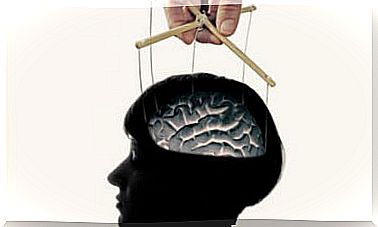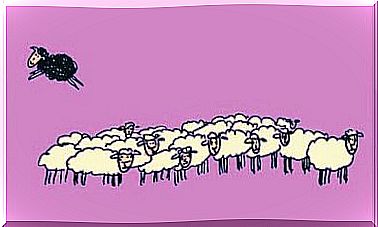Zero Contact: When We Decided To Definitely Leave A Relationship Behind

There are times, both in our professional and personal lives, when there are no alternatives other than this: getting up, putting distance and establishing zero contact. We do this to regain control of our lives and, above all, to clear our emotions and dignities, in order to be treated as we deserve, as people with the right and legitimacy to choose what we want or not.
Something demonstrated by both Developmental Psychology and Cognitive Psychology is that most people are not prepared to stand up and leave something behind. Our brain maps are wired to establish relationships, to connect socially and emotionally. So when this warning system warns us that something is “bad” and it resonates within us that a certain bond is causing us more pain than benefit, it’s common to resist.
However, instead of severing those bonds, we made them up. And we do this by covering with the most sophisticated shadows, layers and concealers. We do it through self-deception ( “This is temporary, it will certainly change” ), through fictitious goals ( “Tomorrow I’ll say what I think and I’ll put an end to this false friendship” ) and even through the most complex defense mechanisms (repression, denial, isolation). We forget, somehow, that endings are as necessary as beginnings.
Fear, like it or not, will always be there, both when we let go of something and when life takes us to a new stage. Therefore, there are times when the best way to allow ourselves to enter this other cycle with greater dignity is to establish zero contact with those who, at a given moment, brought us the same flavor: that of unhappiness.

Zero contact to regain hope
There are decisions that must be taken with safety and strength. For that, it is necessary to learn to mold what many psychologists call “raw emotions”. This type of psychological dimension can be made up of three perspectives, which, although difficult to put into practice, can bring us good results:
- First, let’s think about the possible consequences that can happen if we don’t end this relationship, this work, this bond with a certain someone (stress, suffering, damage to health)
- Second, we must be able to do something very simple: clarify what we want for ourselves ; for example, wanting to feel good and regain control of one’s life. In the end, we must know ourselves solidly enough to know what suits us and what makes us uncomfortable. Once we have this clear, we will reaffirm ourselves in these dimensions
- Third, it is necessary to affirm the desire for change against the shadow of fear . We must focus on the drive to improve in relation to that conservative dimension in which the same unhappiness remains.
After reflecting on these aspects, let’s give shape to this raw emotion that integrates conviction and personal strength to make a decision where there is no longer a place for fear and insecurity. Furthermore, once the purpose is carried out and the people involved are informed about it, we will be able to assess whether we apply zero contact or not.
In which cases is it advisable to apply zero contact?
- We will apply zero contact to stressful relationships. That is, when it is necessary to leave behind the affective relationship with a narcissist or a friendship that demonstrates these same destructive traits.
- Relationships with family members in which the damage is ongoing (and there is no evidence of change, awareness or improvement)
- Likewise, zero contact is also recommended when we leave behind a work environment and colleagues who violated our rights.

Zero contact: you have the right to say no
Good gardeners know that for a rose to always be beautiful and healthy, it must be pruned every period of time. Sometimes they have more buds than they can handle, sometimes they get sick and contaminate the rest, and some take up a space that prevents the rest from growing. Cutting, eliminating all contact with those parts that damage the flowers, is essential so that the environment is always resplendent.
The same thing happens in our relationships. It’s not enough to simply set yourself a distance and lower your face, hoping that things will change while you feed a garden full of weeds. A scenario that does not identify us . We have full right to say “I don’t want any more suffering” and, after that, to pull out the roots of this place so as not to have contact with those who live there again.
Zero contact to free yourself from the tyranny of certain bonds
There are relationships, people and dynamics that should be called by their name : emotional abuse, manipulation, abuse, traumatic bonding, toxic peers or bosses, selfish families or false friends. Clarifying what happens to these people will also help us make decisions with greater certainty.
On the other hand, it is necessary to bear in mind that zero contact in these cases symbolizes the full right to establish limits. It implies our firm resolve to free ourselves from the tyranny of those bonds that held power for a time with a single purpose: to nullify us physically and emotionally. Likewise, it also represents our only guarantee to protect our self-esteem and our psychological integrity.

Therefore, you should not be afraid when making this decision. Furthermore, we are also not obliged to justify ourselves, nor to give many explanations about why we chose to do so. When you assume that the best thing about this new stage is the steady distance and zero contact to heal and start over, there is no longer any reason to waste more energy explaining something the other person certainly doesn’t understand.
If we decide to continue, we must do it with propriety and with a perspective of growth, not with a feeling of guilt. Because the decisions that are made to protect integrity and happiness also serve to make us masters of our destinies, architects of a future with greater hope. And on these paths, the burden of guilt has no space or meaning.









